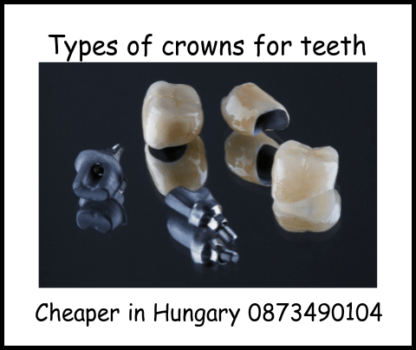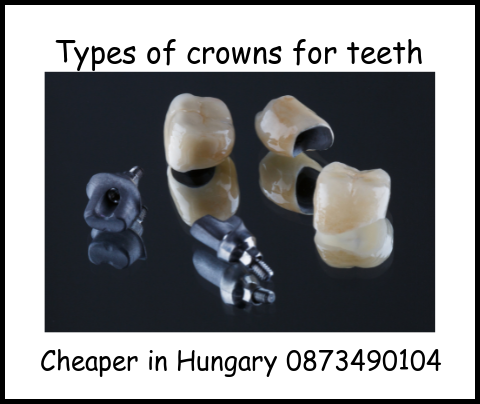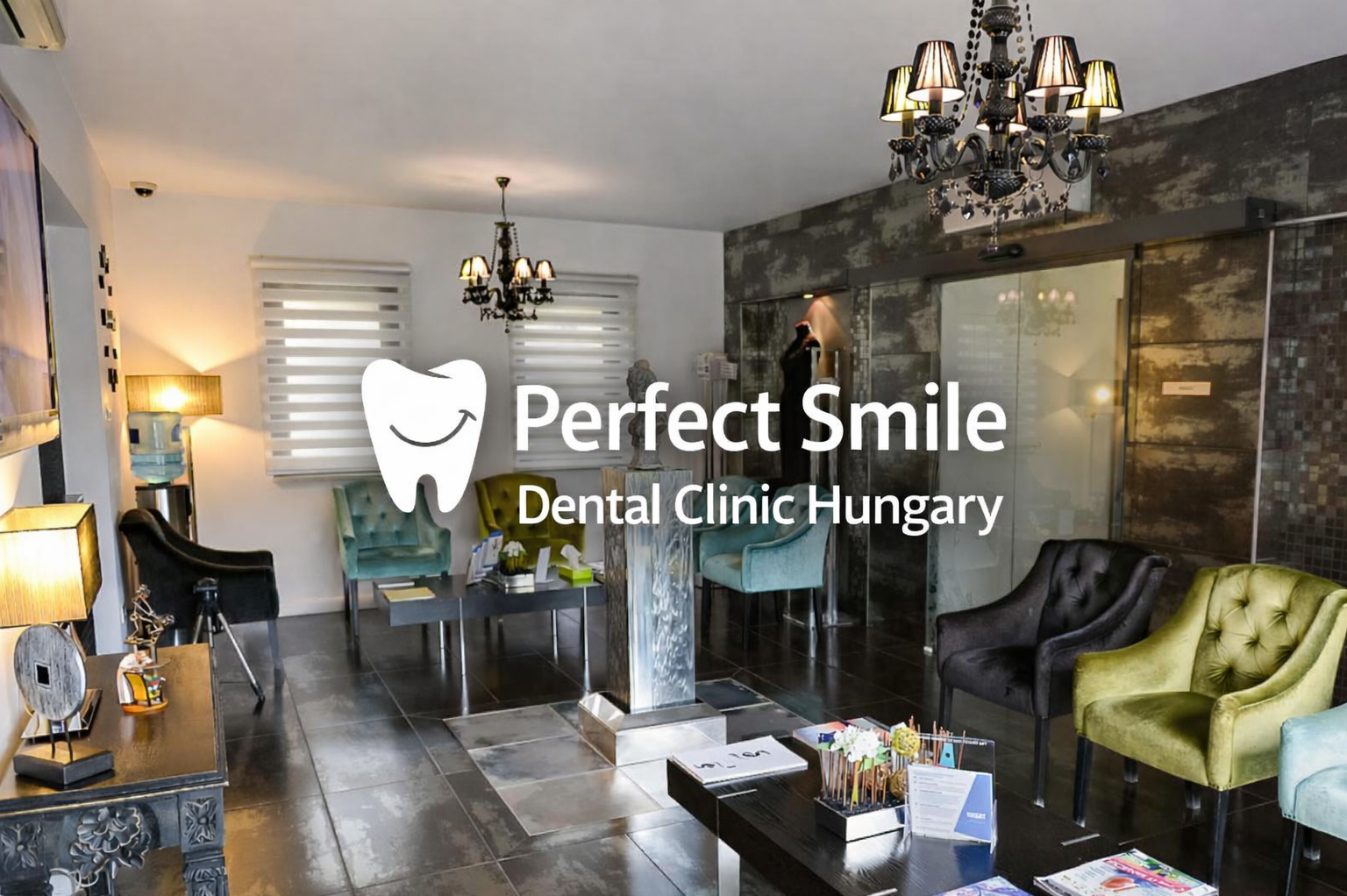Dental crowns are a great way to restore broken, decayed, or worn down teeth, there are different types of crowns for teeth so let’s find out what they are and which are the best types of dental crowns for teeth restoration.
Crowns for front and back teeth are being used by dentists to basically cover teeth that have been reshaped, they are also used to cover a dental implant or root canal treated teeth.
A crown for teeth is shaped in a dental laboratory to fit snugly over a weak, decayed or broken tooth.
A dental crown is shaped to fit over the entire tooth, like a glove, a small piece of enamel will be removed by the dentist to allow for bonding the new crown into place.

A range of materials
Crowns for teeth are composed from a range of materials that include porcelain, metal or resin, with the proper care these types of crowns for teeth can last on average between 5-15 years.
Who needs crowns for teeth
If you need more information on types of crowns for teeth including where is the best and cheapest place to get dental crowns contact Fintan 0873490104.
Who needs crowns for teeth? well there are several situations where crowns for teeth can serve a purpose: they can,
- Support and protect a tooth that is cracked
- Restore a broken or worn down tooth
- To keep a dental bridge in place
- Strengthen a weak tooth
- To cover over a root canal treated tooth
- To cover over a dental implant
- To keep a dental bridge in place
Dental crowns types
Types of crowns for teeth and the best one for your situation can be explained by calling Fintan 0873490104 and scheduling a free consultation with our Hungarian dentist in Wexford.
Not only will you be better informed after your consultation with Dr Tamas or Dr Eda about the types of crowns for teeth, including the best crowns for your teeth, you will also learn about our low cost dental crowns in Perfect Smile dental clinic Hungary.
Porcelian or all ceramic crowns
Porcelian or all ceramic crowns for teeth mimic the tooth enamel appearance better than any other types of crowns for teeth, if you have a metal allergy they are a good choice for you.
Ceramic crowns are made from a variety of materials, the most popular of which are Zirconia crowns mainly because they are very durable and can better take the daily forces that come when eating food.
Zirconia crowns are more gentle on the adjacent teeth, meaning less wear and tear on the teeth enamel.

Metal crowns
For years metal has been used by dental laboratories to make types of crowns for teeth, the metals used include chromium, gold, nickel or palladium.
In terms of longevity metal crowns last the longest, they withstand wear and tear without removing too much enamel, they are better at tolerating everyday chewing and biting forces.
Metal crowns are an excellent choice to cover molars that can’t be seen, the metallic colour of these types of crowns for teeth is a drawback where teeth can be seen.
(PFM) crowns Porcelain-fused-to-metal
(PFM) crowns or Porcelian fused to metal are a good combination of the toughness of metal and the natural appearance of porcelain
Our Hungarian dentist can match these types of crowns for teeth with a very close match to your natural teeth.
Even though (PFM) crowns are strong, they do have certain downsides, for example, over time the porcelian coating may scale off leading to the metal underneath being exposed.
In addition, (PFM) porcelian fused to metal crowns have a tendency to wear down the enamel on the opposing teeth, these types of crowns for teeth can restore both back and front teeth and last as long as the metal crowns.
Pressed ceramic crowns
A pressed ceramic crown is like the (PFM) the main difference is that the core is made from ceramic not metal.
The process takes place in the dental laboratory where the technician melts down ceramic at a very high temperature and presses it to many layers of porcelain.
Similar to all the porcelian crowns the pressed ceramic crowns imitate the transparency of the enamel on your natural teeth.
These types of crowns for teeth (Pressed ceramic) have their own drawbacks in the same way as (PFM) the ceramic layers can chip away over time, pressed ceramic crowns are used by dentists for front and back teeth.
All-resin crowns
All resin crowns are another example of the types of crowns for teeth that are usually less expensive compared to the other types of dental crowns.
However a major drawback is the fact that they are quite fragile, they are most likely going to break, whereas (PFM) crowns are extremely strong, all resin crowns are used to make criwns that are temporary with a shelf life of 3-5 years.
Same-day dental crowns
At Hungarian Dental Implant Centre Wexford and Perfect Smile Dental clinic in Hungary we offer the latest Cad/Cam technology meaning computer aided design with manufacturing capabilities.
This amazing software means that our dentist can do a digital impression of the patient’s teeth, these impressions are used to design a custom made rown.
As soon as the design is ready, they are sent to the dental lab wher a milling machine will make a new crown for teeth from a ceramic block.
The principal advantage of this technology is a dental crown can be made in one single visit to the clinic.
Having said all of that, these types of crowns for teeth may not be suitable for everyone, its important to speak with our Hungarian dentist in Wexford to find out if same day dental crowns are suitable for you.
Ring Fintan 0873490104 for a free xray and dental plan consultation with our lovely Hungarian dentists in our Wexford town clinic.

Types of crowns for teeth the procedure
Teeth preparation
On your first visit to Perfect Smile dental in Hungary our Hungarian dentist will need to prepare your teeth for a crown so, he will need to work on removing a small amount of the enamel on your teeth for treatment.
This allows space to be created for the new crown and to make sure that it stays in position once it is bonded.
There may be a requirement to use a filling material in order to expand certain sections of your teeth, this step is important because a strong foundation is required for all types of crowns for teeth.
Impressions are taken
Impressions of your teeth are taken by our dentist in Perfect Smile Hungary and are taken to our in house dental laboratory, our experienced dental technicians will use the impressions to create custom made crowns for you.
Temporary crowns
At Perfect Smile dental clinic Hungary we are conscious that you are looking forward to your new teeth, our dental lab will only take a couple of days to get them ready, in the meantime we will provide temporary crowns for you.
Within a couple of days your brand new crowns will be ready for fitting, first our dentist will take out the temporary crowns, fit the new crowns ensuring a snug fit, shape and exact match to your natural teeth.
The new types of crowns for teeth will be bonded to your teeth with strong dental cement, this step is permanent and may not take place in Hungary but in our Wexford clinic.
The reason being your gums may be swollen so the permanent bonding won’t take place until you go back home to Ireland to allow time for your gums to heal.
Types of dental crowns advantages
When it comes to the various types of crowns for teeth the most noteworthy advantage is how well they extend the life of your natural teeth, all types of dental crowns can:
- Restore decayed, worn or broken teeth
- Enhance chewing outcomes
- Protect teeth from wear and tear
- Enrich your teeths appearance
- With proper care last between 5-15 years
Types of dental crowns disadvantages
Whilst there are many advantages to the various types of dental crowns there are a few minor disadvantages for example,
- Some of the tooth enamel has to be removed
- Crowns can over time fracture or break
- Bacteria can get caught in Ill fitting crowns
- Possible but rare allergic reaction in some patients
- Crowns can be very expensive especially in Ireland
Cost of various types of crowns
If you live on the island of Ireland you will find that all of the various types of crowns for teeth are quite expensive, a simple internet search shows that the cost of dental crowns in Ireland ranges between €800-€1000.
If you need a large number of crowns for your teeth the cost in Ireland can run in several thousands of euros.
Did you know that the cost all types of crowns for teeth in Perfect Smile dental clinic Hungary are considerably lower, for example a top quality Zirconia or porcelian crown cost just €365 in Hungary.
To find out more information on the cost and procedure of all types of crowns for teeth call Fintan 0873490104.
At Hungarian Dental implant Centre Wexford town and Perfect Smile dental Hungary we are confident and happy to offer you a free dental plan so that you can see for yourself how much money can be saved by visiting Perfect Smile dental in Hodmezvasahely Hungary.
All types of dental crowns recovery time
We understand that dental work to prepare teeth for dental crowns can have an impact on how your gums will feel for a while after treatment, most patients will feel a small bit of sensitivity for the first few weeks.
There may be a little soreness and tenderness in your gums where the treatment has taken place, these are normal side effects that will subside within a few days, any discomfort can be relieved by over the counter pain medication.
That is to be expected, however, the vast majority of our patients will resume their daily activities upon returning to Ireland, we will need you to come to the Wexford clinic for aftercare.
What foods should you avoid with dental crowns
We advise our patients that have had any types of crowns for teeth fitted to avoid certain foods because they can dislodge the crowns for example:
- Popcorn
- Sticky food such as toffee or caramel
- Very hard nuts
- An ice cube
How long lasting are dental crowns.?
With the proper care and maintenance as in brushing with a flouride toothpaste using an electric toothbrush, flossing and get regular dental cleanings on your teeth most types of dental crowns should last between 5 to 15 years.
Regular check-ups in Wexford will ensure that our dentist will spot any wear and tear and allow for a replacement tooth.

Conclusion
I do hope that the information given here on types of crowns for teeth will help you to understand how dental crowns are a great way to restore decayed, worn or damaged teeth.
As you have seen, there are so many types of dental crowns to choose from.
Our advice is to make that phone call to Fintan 0873490104 to organise a consultation with Dr Tamas or Dr Eda in Hungarian Dental Implant Centre Wexford to get the best advice on which are the best types of crowns for teeth that would be best for you.
References
https://www.ncbi.nlm.nih.gov/pmc/articles/PMC5125852/


